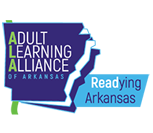As a tutor, you play a vital role in helping adult learners achieve their educational and career goals. One powerful tool at your disposal is the TABE (Test of Adult Basic Education) test. The scores your students achieve on this assessment can provide valuable insights and opportunities for targeted instruction. In this blog post, we’ll explore how to effectively apply the scores from the TABE test to enhance your tutoring sessions and support your students’ progress.
1. Understanding the TABE Scores:
Before you can apply the scores, it’s crucial to understand what they represent. The TABE test assesses a student’s proficiency in reading, math, and language. The scores are typically divided into different levels, indicating the student’s current skill level in each of these subjects. Familiarize yourself with the score interpretation to pinpoint specific areas where your student needs improvement. There are also correlation charts for most of the curricula available. An example for Journey To Success is found here.
2. Personalized Lesson Planning:
Armed with your student’s TABE scores, you can create a personalized lesson plan. Identify the areas where your student scored lower and focus your tutoring efforts on these weak points. Develop targeted exercises, activities, and resources that address their specific needs. This tailored approach can significantly accelerate their progress.
3. Goal Setting:
TABE scores can serve as a baseline for setting achievable goals with your students. Work together to establish realistic targets for improvement. By having clear goals, your students will be more motivated and focused in their learning journey.
4. Tracking Progress:
Regularly administer the TABE test to track your student’s progress. By comparing new scores to their initial results, you can measure the effectiveness of your tutoring efforts. Celebrate their successes and use the results as a basis for adjusting your teaching methods if needed.
5. Providing Constructive Feedback:
Share the TABE scores and progress reports with your students. Offer constructive feedback based on their performance, and use it as a starting point for discussions about strengths and weaknesses. Encourage open communication to address any concerns or questions they may have.
6. Integrating Real-Life Scenarios:
The ultimate goal of education is to apply what you’ve learned in real-life situations. Integrate practical, real-world scenarios into your lessons to help students see the relevance of their newfound knowledge. This will not only boost their confidence but also demonstrate the value of improving their TABE scores.
7. Patience and Encouragement:
Improving TABE scores takes time and effort. Be patient and provide continuous encouragement to your students. Celebrate small victories, and remind them of the progress they’ve made since they started their educational journey.
8. Professional Development:
Consider expanding your knowledge and tutoring skills by attending workshops or training sessions focused on using TABE scores effectively. Learning more about educational assessments can benefit both you and your students.
In conclusion, the TABE test is a valuable tool for tutors working with adult learners. By understanding the scores, creating personalized lesson plans, setting goals, and tracking progress, you can make a significant impact on your students’ educational journeys. Through patience, encouragement, and ongoing professional development, you’ll help your students achieve their academic and career aspirations, one step at a time.







